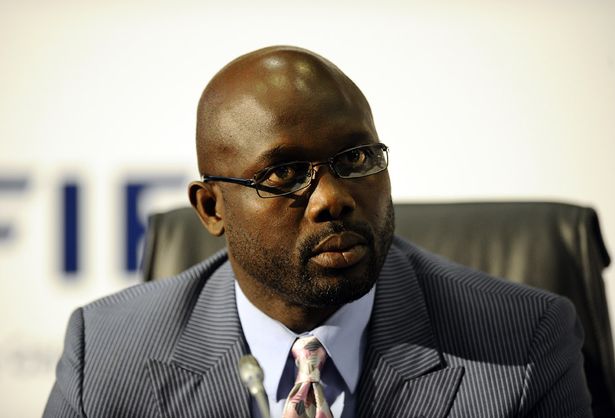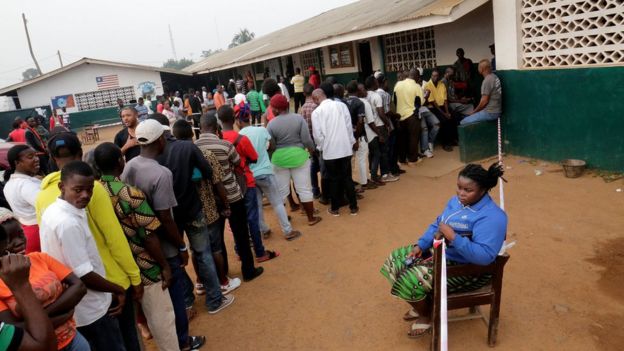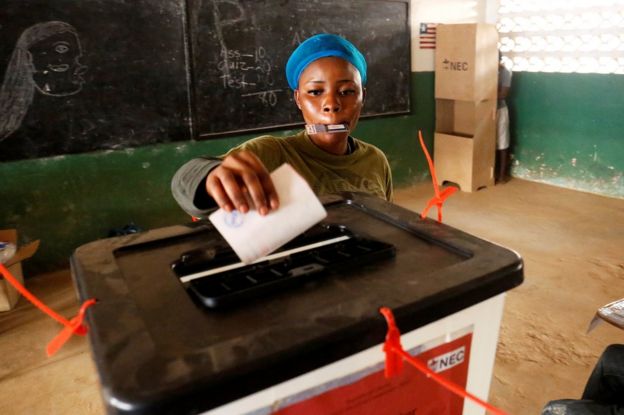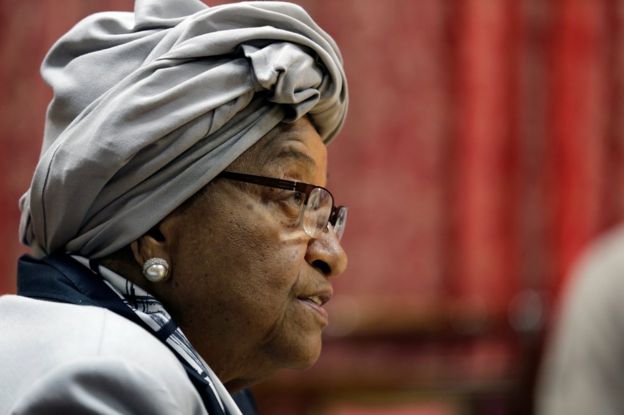


LIBERIANS are choosing a new president in a run-off vote between Vice-President Joseph Boakai and former international footballer George Weah.
Mr Weah, 51, won the first round, but did not secure the required 50% of the vote for an outright victory.
Legal challenges delayed the vote to replace Ellen Johnson Sirleaf, Africa’s first elected female president.
Liberia, which was founded by freed US slaves in the 19th Century, has not had a smooth transfer of power in 73 years.
Polls across Liberia opened at 08:00 GMT and will close at 18:00.
More than two million people are eligible to cast their ballots.
Mr Boakai, 73, has been Liberia’s vice-president for 12 years but does not seem to enjoy the support of his boss, the BBC’s Umaru Fofana reports from the capital, Monrovia.
The candidate has described himself as being like a limousine idly parked for years in a garage and who is now ready to hit the road.
Mr Weah, the former world footballer of the year, is hoping for a third time lucky.
He defeated Ms Johnson-Sirleaf in the first round in 2005 but lost to her in the subsequent run-off. In the following election run-off, in 2011, when he ran as a running mate to the opposition candidate, his coalition boycotted the vote, citing irregularities.
A representative for the opposition Liberty Party, Charles Brumskine, who came third in October’s first round, challenged the result, saying it had been marred by “massive fraud and irregularities”.
 Voters queued outside polling stations in Monrovia on Tuesday
Voters queued outside polling stations in Monrovia on Tuesday
But earlier this month the Supreme Court ruled that evidence of fraud was insufficient to merit a re-run of the opening round.
The verdict meant that the run-off – which had initially been set for 7 November – could go ahead.
Tuesday is not a public holiday in Liberia but the Christian-majority country, like most of the rest of the Christian world, celebrated Christmas on Monday.
Its chief electoral officer acknowledged that the choice of election day posed a challenge to Liberians.
“We realise that this day is immediately after Christmas Day,” said Jerome Korkoya, president of the National Elections Commission, earlier this month.
“We call on all registered voters to make that one sacrifice, for the love of our democracy.”
However, Ibrahim Al-Bakri Nyei, a Liberian political analyst at London’s School of Oriental and African Studies (SOAS), told AFP news agency that turnout was likely to be lower than at the first round because of the date.
“It’s too close to call,” he said.
Goodluck Jonathan, the former Nigerian president, who is monitoring the election as part of the National Democratic Institute Observer mission, told the BBC he was certain it would be free and fair.
 Casting a vote in Monrovia
Casting a vote in Monrovia
“Liberia has, true, some challenges,” he said.
“We’re witnessing a situation where the sitting president will hand over to another democratically elected president. That will tell the whole world that Liberia is now a stable country democratically and that the remaining thing is to grow the economy.”
 Ellen Johnson Sirleaf is stepping down after 12 years
Ellen Johnson Sirleaf is stepping down after 12 yearsThis will be the first time for many generations that Liberians witness a transfer of power from one elected leader to another.
Outgoing President Sirleaf has praised a violence-free electoral process, saying that “the ballot box has replaced bullets and electoral disputes are settled through the courts”.
Ms Sirleaf took office in 2006, after her predecessor, Charles Taylor, was forced out by rebels in 2003, ending a long civil war.
Taylor is currently serving a 50-year prison sentence in the UK for war crimes related to the conflict in neighbouring Sierra Leone.
The results of the run-off are due to be announced within four days. –bbc.com